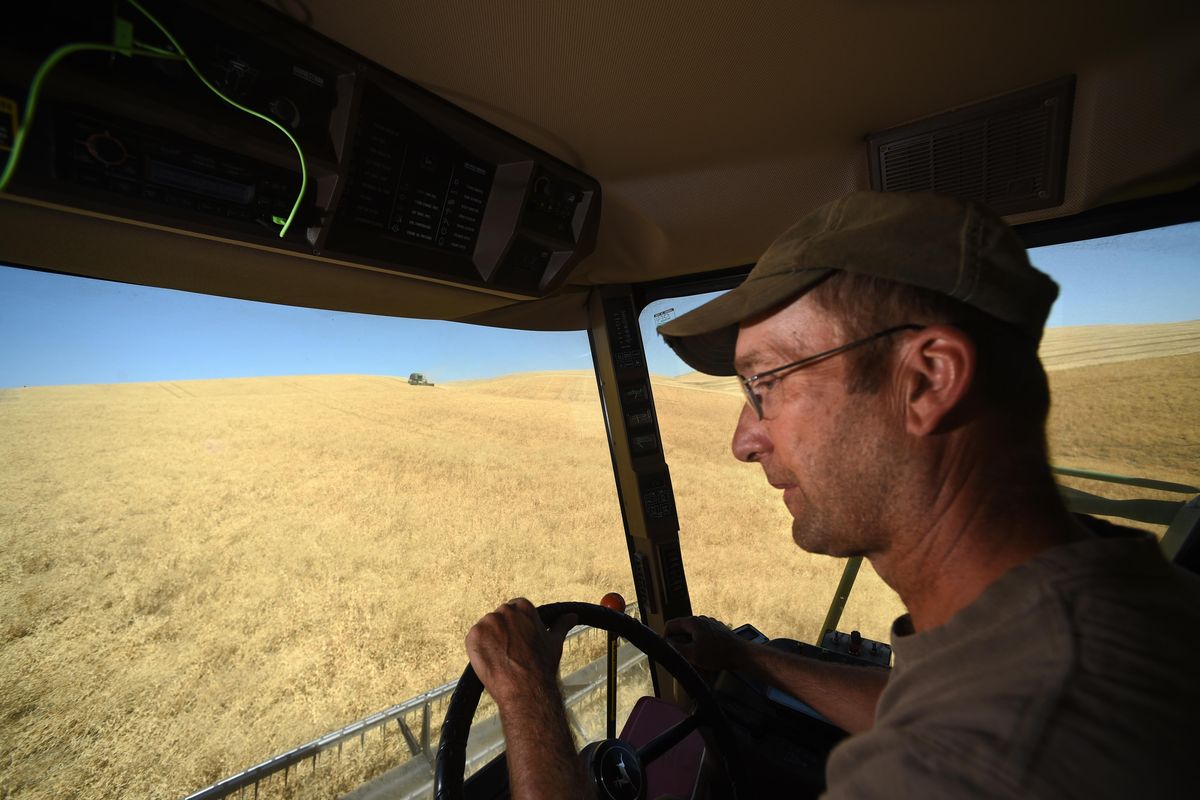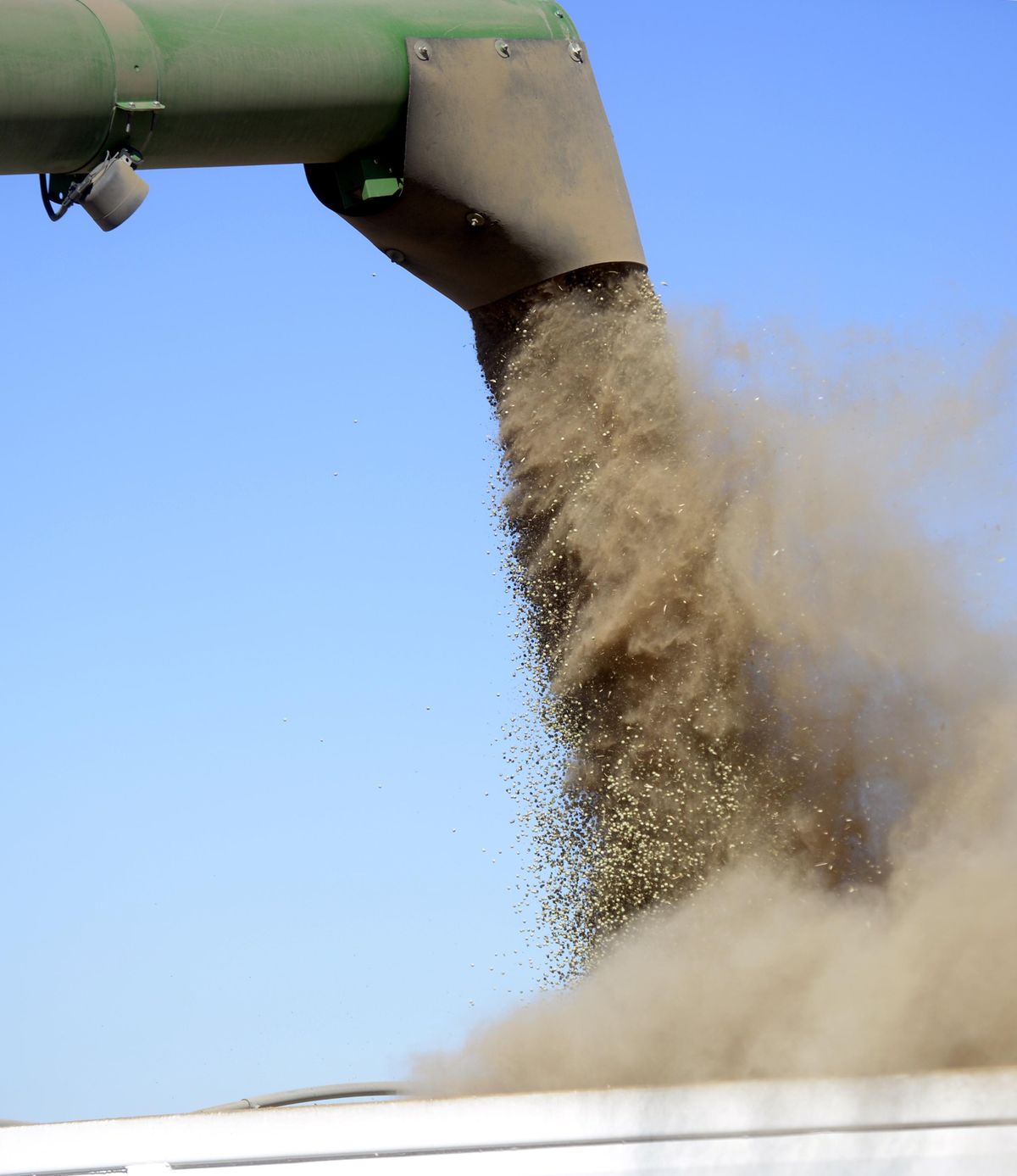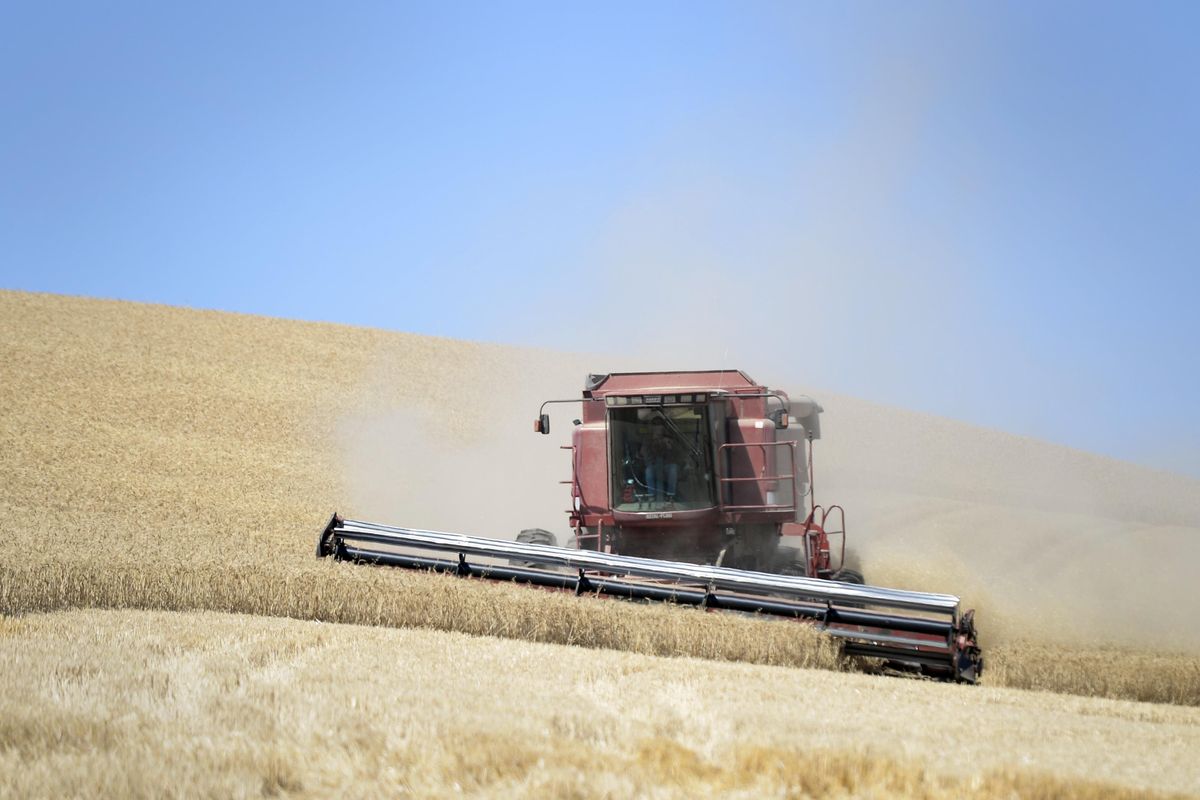It’s a tough year for Washington wheat farmers
Peas harvested on the family farm of Scott and Laurie Roecks are unloaded onto a trucks near Rosalia Tuesday. The peas will be sold at the elevator in nearby Spangle, Washington. (Jesse Tinsley / The Spokesman-Review)Buy a print of this photo
To cut, or not to cut. That’s the question many wheat farmers have asked this harvest season as they grapple with unusual temperature swings and bouts of rain.
The weather has caused wheat kernels to sprout too early and retain too much moisture, making the grain difficult to store in silos. One day the moisture content is an ideal 9 percent, and the next it’s way too high, at nearly 13 percent, meaning grain companies won’t buy it.
On one recent afternoon, Mike Burnham visited a grain elevator in Plaza, Washington, with a sample of wheat in a Folgers coffee can. He rejoiced when a machine clocked the moisture content at 12 percent – a barely passing grade.
“Well, it looks like we’re going to cut today!” he said. “I can’t believe it.”
As they near the halfway point of the harvest, growers say their yields are high but quality is suffering. Some fear they’ll hardly turn a profit, even though they had hoped to improve over last year’s crushing low yield.
“We all thought our wheat was going to be awesome this year,” said Laurie Roecks, who owns SLR Farms near Rosalia with her husband.
The U.S. Department of Agriculture projected months ago that Washington would produce 126.6 million bushels of wheat this season, up nearly 14 percent from last year’s 111.5 million bushels.
So it was devastating to run into the quality issue, said Scott Yates, a spokesman for the Washington Grain Commission. “It’s really disappointing in a year when this was really shaping up to be a record harvest.”
Grain companies have been paying more than $5 per bushel of soft white wheat, the variety most commonly grown in Washington. But they dock a hefty percentage if the wheat has too much moisture or protein, sometimes paying less than $4.
“There’s always a little bit of dockage because there’s no perfect wheat anymore,” Roecks said.
Farmers have faced steep declines since 2012, when the price in Portland – a baseline for the Northwest market – peaked at more than $9.
“We have to take whatever the co-ops will give us,” said Bill Sievers of Overtime Farms near Spangle.
“We’re reaching the point where it’s going to cost us more to put it in the ground than we’ll get for it,” said his son, Charlie Sievers. “We’ll be running in the red.”
Prices are so low that the Washington Grain Commission had to reduce its annual budget by more than half a million dollars. This year’s $5.28 million budget is about 10 percent smaller than last year’s $5.87 million. And $1.3 million of that is coming from reserves.
The grain commission is funded by a tax on the first point of sale of grains: 0.75 percent for wheat and 1 percent for barley.
While weather conditions work against farmers, the problem is mainly economic. The USDA projects that global supplies of wheat will exceed international demand by more than a quarter-billion tons this year.
“The big picture is that the world is awash in wheat,” said Yates, the grain commission spokesman. “That has pushed prices down worldwide. The reason we have a problem is that other countries have wheat at lower prices than ours.”
The Financial Times of London reported Thursday that Russia is poised to become the world’s largest exporter of wheat this year for the first time. The newspaper said the Black Sea region – Russia, Ukraine and Kazakhstan – “has become a force in the international wheat market, boosted by high yields, weak currencies and falling freight rates.”
Because Washington is the primary producer of soft white wheat, a prized variety, the state’s farmers have fared somewhat better than those in the Midwest, Yates said. Growers in Montana have reported losses as winter wheat values dropped as low as $2.16 a bushel.
Some growers worry that last month’s discovery of genetically modified wheat growing in a Washington field will further damage their prospects. Several Asian countries concerned about engineered food temporarily banned U.S. wheat imports after genetically modified wheat cropped up on an Oregon farm in 2013.
At 70, Mike Burnham has been growing wheat a long time. Now working on Roecks’ farm, he said he believes this downturn is unprecedented.
“It hit us worse than it ever has.”



